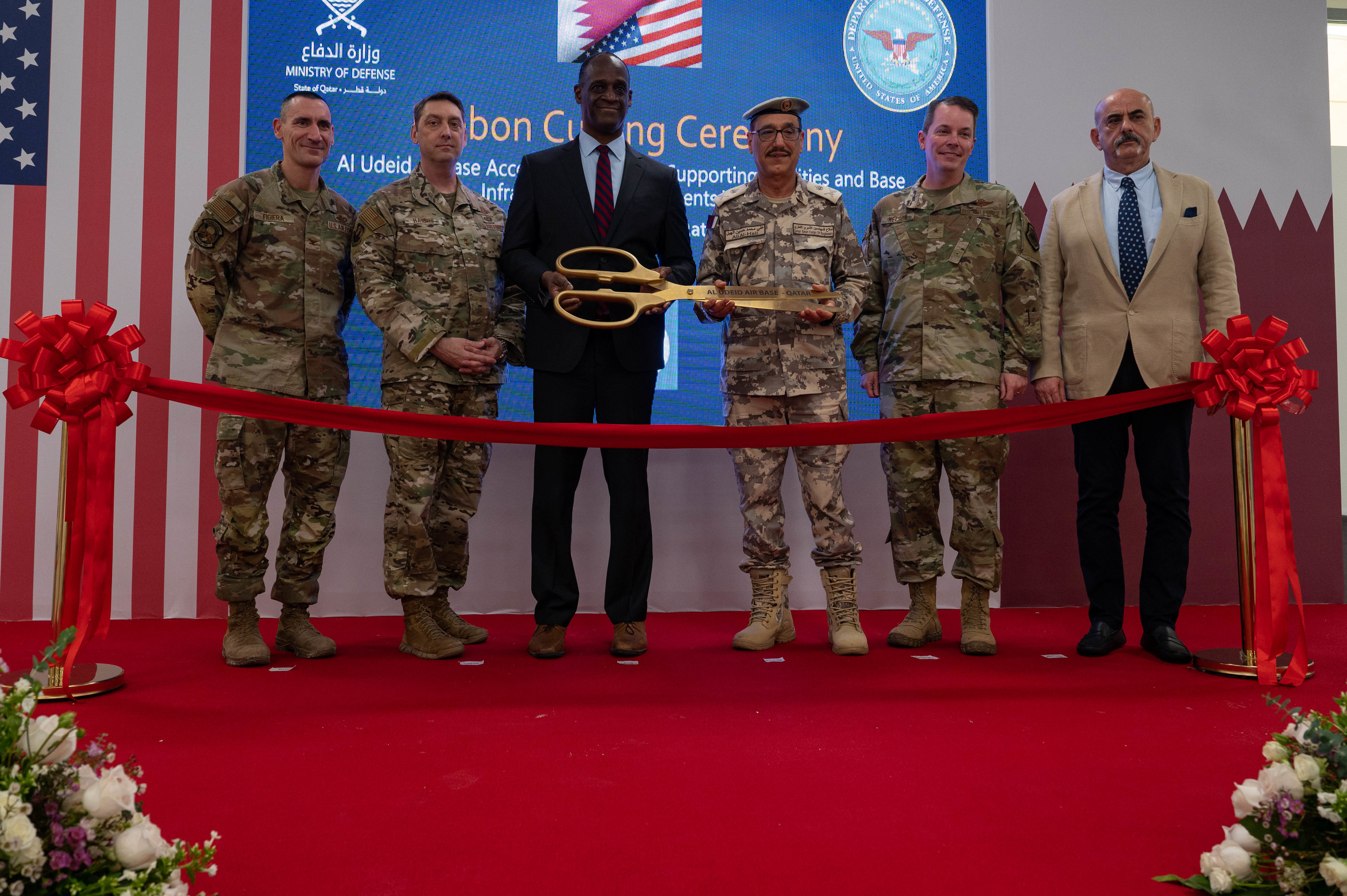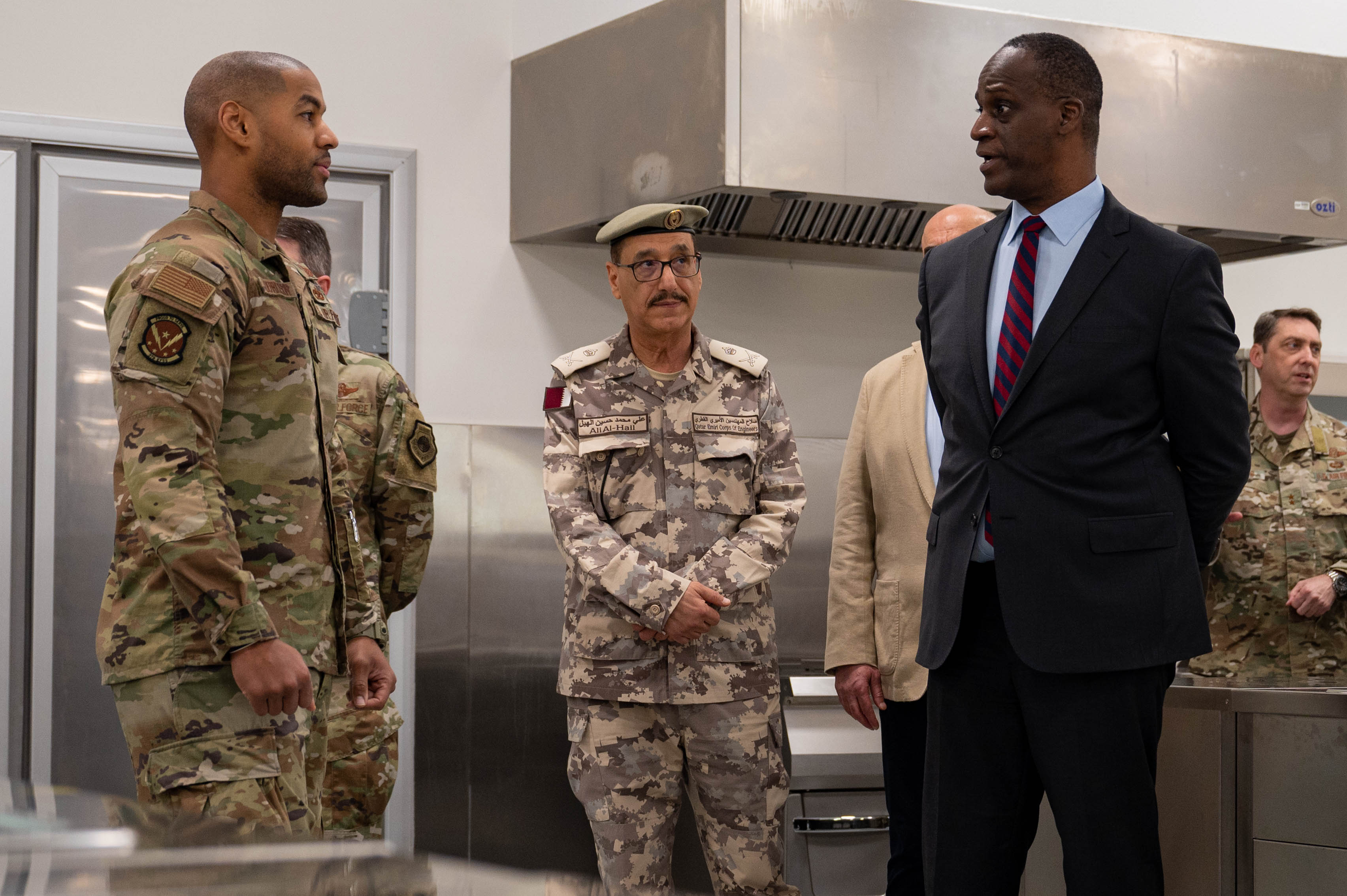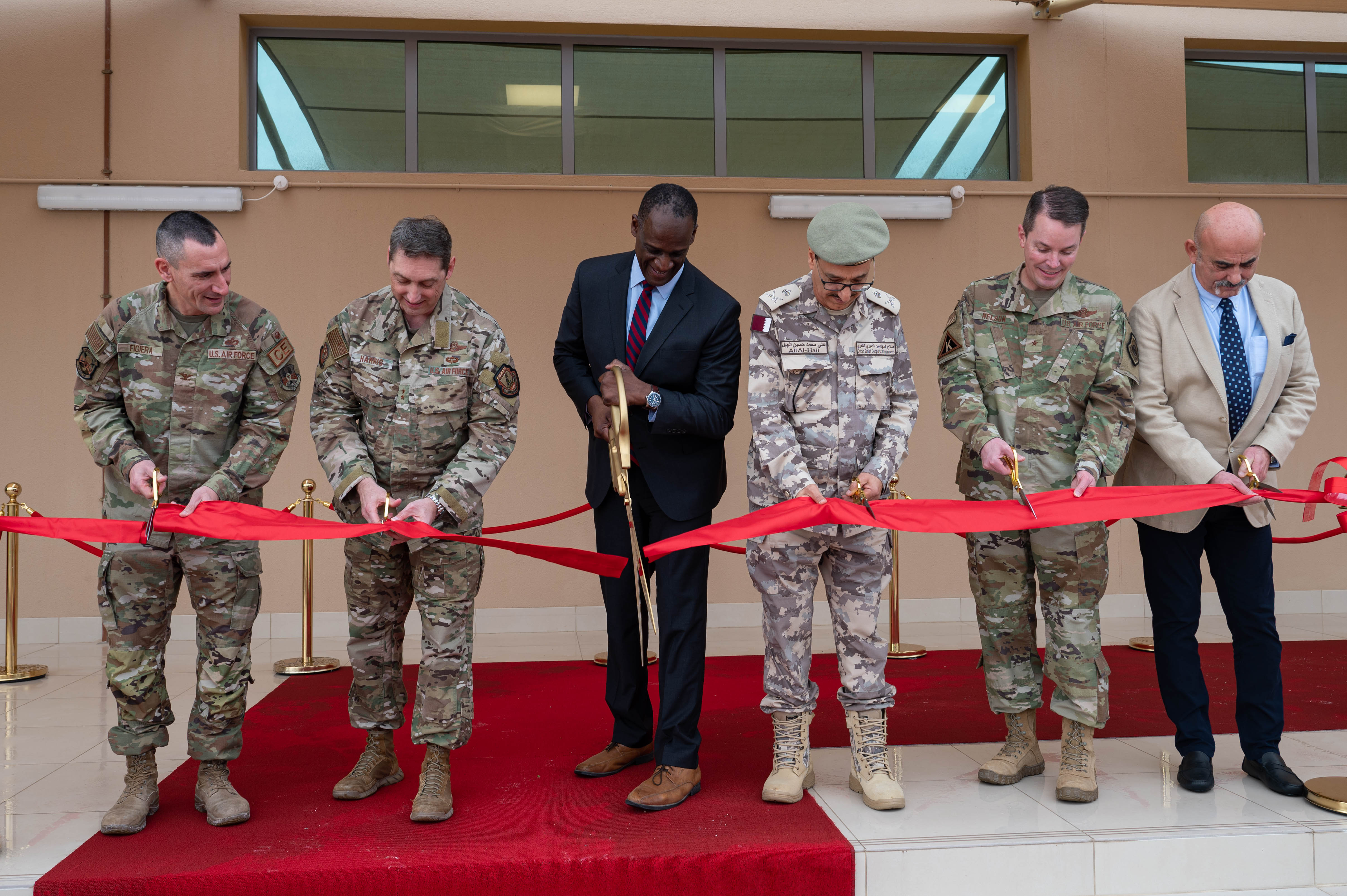Ninth Air Force (Air Forces Central) -- The partnership between Qatar Emeri Corps of Engineers (QECE) and the Ninth Air Force (Air Forces Central) Program Management Office (PMO), recently reached a milestone with phase one completion of the Qatar Development Of Al Udeid (QDA) program for Al Udeid Air Base.
The PMO team works with partner nations and programs to execute various infrastructure projects for mission sustainment to develop air bases throughout the region and promote a culture of partnership with 9 AF (AFCENT)’s host nations.
Recently, QECE and PMO completed 38 total projects and 23 new buildings during phase one of Al Udeid Air Base’s 2040 Strategic Master Plan for the base. Phase one focused on Airmen’s quality of life and infrastructure, totaling in over $1.4 billion.

 "These investments in the physical infrastructure at Al Udeid Air Base reflect an enduring commitment to the close security partnership of Qatar and the United States,” said U.S. Ambassador to Qatar Timmy T. Davis. “The Qatar Emiri Corps of Engineers has done an exemplary job, which will aid our shared mission to ensure regional security."
"These investments in the physical infrastructure at Al Udeid Air Base reflect an enduring commitment to the close security partnership of Qatar and the United States,” said U.S. Ambassador to Qatar Timmy T. Davis. “The Qatar Emiri Corps of Engineers has done an exemplary job, which will aid our shared mission to ensure regional security."
Operational facilities include 10 new dormitories with surge capacity for over 10,000 Airmen and 2 dining facilities that can serve up to 500 Airmen every half hour. Additionally, a new security forces armory, a new gate, and a new office building for several mission support functions.
These projects are a part of a larger road map for the installation to determine the infrastructure and facilities required to enable the execution of the U.S. Central Command commander’s priorities and mission requirements, now and in the future.
“The 2040 Master Plan outlines the facilities and infrastructure required to transform Al Udeid from a contingency base to an enduring location,” said U.S. Air Force Col. Anthony Figiera, 9 AF (AFCENT) PMO director. “It includes facilities to support current and projected future missions, infrastructure improvements to support expansion, and a phasing plan to develop the base deliberately to minimize impacts to current missions.”

While construction continues across the CENTCOM AOR, AFCENT is developing a Theater Support Group (TSG) that will expand on PMO’s roles and responsibilities.
PMO has already accepted increased mission responsibilities, implementing new strategies and plans for two Agile Combat Employment (ACE) locations. PMO has increased command and control capabilities to provide mission command for future forces surged to theater to provide capabilities previously assigned to the 1st Expeditionary Civil Engineer Group (ECEG), which closed last month.
PMO is not replacing the 1st ECEG mission, but will instead transform PMO into a TSG that will continue the traditional PMO construction mission while having the ability to rapidly flex just in time forces to prepare and sustain ACE locations.
At Al Dhafra Air Base, U.S. partnerships with United Arab Emirates along with the PMO are executing the United States Development Area (USDA) program and investing heavily into the future of the base.
USDA projects include; a refueler/ISR ramp, a fighter ramp, taxiway improvements, an electrical substation, and a chilled water plant.
These developments continue to showcase the U.S.’s dedication to an enduring presence in the CENTCOM area of responsibility.
“Although we have reduced forces in theater, that does not reflect a reduced commitment,” said Figiera. “If you don’t believe that, just look at the $10.4 billion dollars of new construction executed through the PMO, which demonstrates a clear commitment to the long-term security of the region.”
